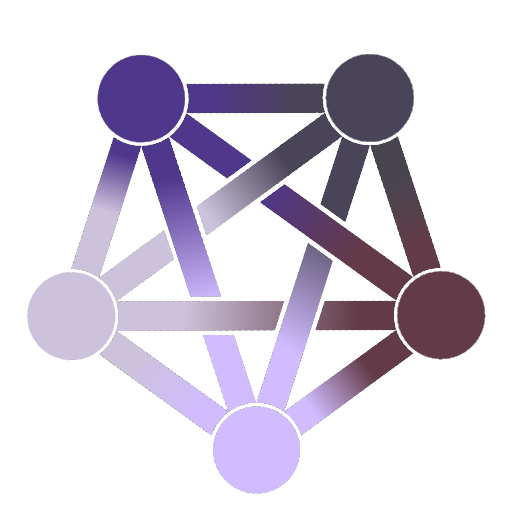Interviewing Ghislaine Maxwell is the Trump administration’s first big move to allay concerns about its hugely unpopular handling of the Jeffrey Epstein files. Deputy Attorney General Todd Blanche on Friday wrapped up two days of interviews with Epstein’s convicted associate.
But there were already all kinds of reasons to be skeptical of this move and what it could produce, given the motivations of the two sides involved.
And President Donald Trump epitomized all of them in a major way on Friday.
While taking questions on his way to Scotland, Trump repeatedly held open the possibility of pardoning Maxwell for her crimes.
“Well, I don’t want to talk about that,” Trump said initially.
When pressed, he said, “It’s something I haven’t thought about,” while conspicuously adding, “I’m allowed to do it.”
This wouldn’t be the first time Trump has appeared to dangle a pardon over someone providing evidence that could impact him personally and politically. (In this case, he has demonstrated past personal ties to Epstein, and his administration is scrambling to clean up its botched handling of the Epstein files after previously promising to release them.)
A similar situation played out during the Russia investigation, when Trump repeatedly left open the possibility of pardoning key witnesses like Paul Manafort, Michael Flynn and Michael Cohen. Critics alleged this amounted to obstruction of justice.
Special counsel Robert Mueller’s report didn’t draw conclusions on possible obstruction, but it did cite Trump’s pardon comments as “evidence” that Trump’s actions “had the potential to influence Manafort’s decision whether to cooperate with the government.”
Manafort indeed wound up being a decidedly uncooperative witness, with a bipartisan Senate report saying his repeated lies hamstrung its own investigation. And Trump later pardoned him in a move that could certainly be understood as a reward for his lack of cooperation.
We are a joke of a nation.
From another poster.
Here are all of the Epstein Files that have either been leaked or released.
https://joshwho.net/EpsteinList/gov.uscourts.nysd.447706.1320.0-combined.pdf (verified court documents)
https://joshwho.net/EpsteinList/black-book-unredacted.pdf (verified pre-Bondi) Trump is on page 85, or pdf pg. 80
Trump’s name is circled. The circled individuals are the ones involved in the trafficking ring according to the person who originally released the book. These people would be “The List “ Here is the story.
https://www.youtube.com/watch?v=hsiKUXrlcac
Here’s the flight logs https://www.documentcloud.org/documents/21165424-epstein-flight-logs-released-in-usa-vs-maxwell/
—————————other Epstein Information
https://cdn.factcheck.org/UploadedFiles/Johnson_TrumpEpstein_Calif_Lawsuit.pdf here’s a court doc of Epstein and Trump raping a 13 yr old together.
Some people think this claim is a hoax. Here is Katies testimony on youtube: https://www.youtube.com/watch?v=gnib-OORRRo
Epstein’s Ex Says He Boasted About Being a Mossad Agent https://share.google/jLMGahKlCzfV1RHZq Epstein and Israel both hired lawyer Alan Dershowitz, who says he’s building ‘legal dream team’ to defend Israel in court and on internationally | The Times of Israel https://share.google/Lb9hDOduBWG4Elpid
Epstein Docs: https://ia600705.us.archive.org/21/items/epsteindocs/
Epstein Bribes/Payments: 1 BILLION+ https://www.youtube.com/watch?v=c7IrEi-ybzs
—————————other Trump information:
Here’s trump admitting to peeping on 14-15 year old girls at around 1:40 on the Howard Stern Radio Show: https://youtu.be/iFaQL_kv_QY
Trump’s promise to his daughter: https://www.huffpost.com/entry/donald-trump-ivanka-trump-dating-promise_n_57ee98cbe4b024a52d2ead02 “I have a deal with her. She’s 17 and doing great ― Ivanka. She made me promise, swear to her that I would never date a girl younger than her,” Trump said. “So as she grows older, the field is getting very limited.”
Trump’s modeling agency was probably part of Jeffreys pipeline: https://www.motherjones.com/politics/2016/08/donald-trump-model-management-illegal-immigration/
A good summary of Trump-Epstein timeline: https://thepresidential.medium.com/we-have-been-gaslit-about-donald-trump-and-jeffrey-epstein-for-four-years-fbda67c20f75
• Much of this info can also be found on: https://theepsteindocs.com/
Feel free to do your part and spread this info around so it is never “lost”.
LMAO they’re totally trying to launder her, and it’s so wild and so transparent
I can’t wait to see what she’s going to say. It’s going to be an interesting story, trying to weave everything together
Unfortunately I don’t think she has to mesh everything, she just needs to lie. Who’s gonna do anything about it?
“Ms. Maxwell, what about all those pictures and videos with epstein hanging out with Dump?”
“Oh, those were Obama.”
We can do better. The ability to pardon should be stripped from our nation. It completely subverts the judicial branch and system. It is a power kings of the past had. We have no kings here.
Pardons should be done as a popular vote, IMO.
It is important to have a mechanism to right the past wrongs of a nation against someone, particularly when the judicial system has failed them. But yeah, there’s no need for it to be singularly in the hands of the president.
Removed by mod
I think Trump underestimates just how large Pizzagate was and how much momentum it gave him.
If Trump is even slightly (going by the bare minimum) implicated in what is to come the following weeks his most internet savvy supporters will turn on him. Who knows what happens when the gears are groining but slowly turning.
Fingers crossed 🤞
no morals, no problems




